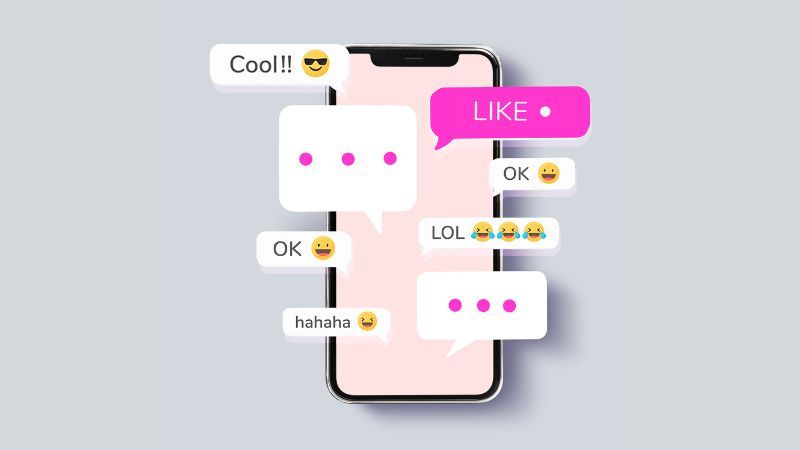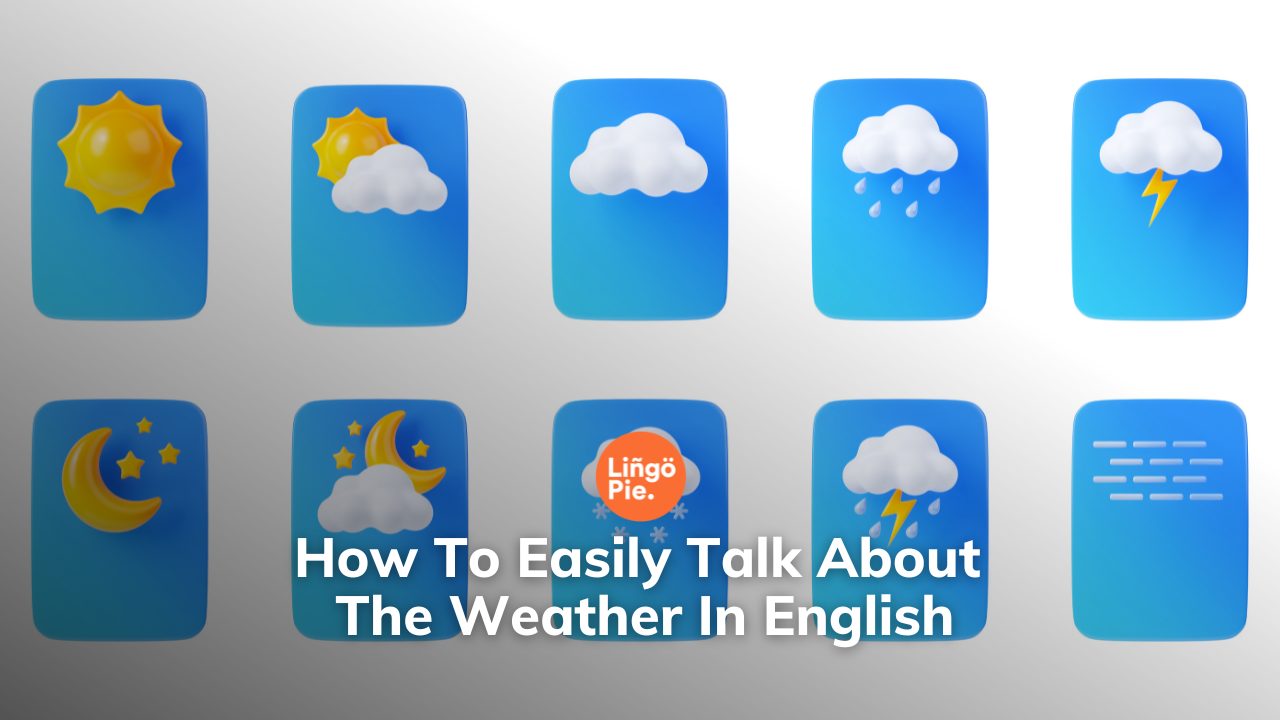Laughter connects us all, no matter where we're from or what language we speak. In today's digital world, where we chat, joke, and connect online, laughter plays a big part in our online communication too.
But have you ever thought about how people from different cultures express laughter online? It's fascinating how something as simple as a laugh can vary so much depending on where you're from.
In this blog post, you will learn how to laugh online in different languages, exploring what makes us chuckle across cultures and why it matters in our digital conversations. So, grab a seat and get ready to LOL with us as we uncover the fun side of online communication!
LOL: Laughing Out Loud in English
The acronym "LOL," short for "Laughing Out Loud," has become a staple in online communication, but its origins might surprise you.
Back in the early days of the internet, when chat rooms and instant messaging were gaining popularity, "LOL" emerged as a convenient shorthand for expressing amusement in text-based conversations. Its exact origin is somewhat murky, but it likely evolved organically as internet users sought ways to convey laughter without typing out full phrases.
Over time, "LOL" has transcended its original purpose, becoming not just a means of indicating humor but also a social cue signaling camaraderie and shared amusement.
Variations of LOL: ROFL, LMAO, and More
As online communication evolved, so too did the lexicon of laughter. "ROFL" (Rolling On the Floor Laughing), "LMAO" (Laughing My Ass Off), and a slew of other variations sprouted up, each offering a slightly different degree of amusement.
These variations serve as embellishments to the basic "LOL," adding layers of intensity to the laughter conveyed. While "LOL" might indicate a mild chuckle, "ROFL" suggests something so funny that it's causing physical convulsions, while "LMAO" implies a level of hilarity that borders on the absurd.
These variations have become ingrained in online culture, enriching our digital interactions with a spectrum of laughter.

Haha: The Go-To Online Chuckle
When it comes to cracking up online, "haha" is like the trusty old friend you can always count on. It's simple, it's easy, and it's everywhere. Whether you're chatting with friends or scrolling through social media, chances are you'll come across plenty of "hahas" lighting up your screen. It's the go-to way we express that something's funny in the digital world.
"Haha" Around the World
But here's the cool thing—this little word isn't just for English speakers. Nope, it's like a global passport to laughter. In different languages, it might sound a bit different, like "jaja" in Spanish or "héhé" in French, but the meaning stays the same: we're all laughing together, no matter where we're from.
Different Strokes for Different Folks
And just like how every group of friends has its own inside jokes, different cultures have their own unique ways of laughing online too. Take Japan, for example—they've got "www" to express laughter, while in Korea, it's "kekeke." It's like a little peek into how humor varies around the world, but at the end of the day, we're all just sharing a good laugh together.
Hehe: The Subtle Giggle
"Hehe" is like the understated cousin of online laughter—it's not as loud or attention-grabbing as "haha" or "LOL," but it has its own charm. This subtle chuckle often conveys a quieter form of amusement, like when something is mildly funny or amusing without being laugh-out-loud hilarious. It's the digital equivalent of a soft giggle or a suppressed smile, adding a touch of whimsy to our online conversations
"Hehe" In Other Cultures
Like any form of online expression, the interpretation of "hehe" can vary depending on cultural context. In some cultures, a "hehe" might be seen as a sign of shyness or politeness, while in others, it could indicate genuine amusement. Understanding these cultural nuances is key to interpreting "hehe" accurately and avoiding misunderstandings in our digital interactions. While its meaning may shift slightly from culture to culture, the essence of "hehe" remains the same—a lighthearted nod to the quieter moments of humor that bring us together online.
XD: The Visual Laugh
You've probably seen it around—a couple of letters forming a face with wide eyes and a big, open mouth. That's "XD." It's like the emoji version of laughing out loud. Originally just a quirky combination of characters used in online chats, "XD" has grown into this big, universal symbol of laughter. It's the kind of thing that can turn a regular text message into a virtual belly laugh.
XD Speaks Every Language
Even though "XD" started in English-speaking online communities, it's found its way into conversations all over the world. In different languages, people might pair it with local characters or symbols for laughter, but the message is always the same: we're laughing, and we're having a great time. It's proof that laughter truly is a universal language, and "XD" is its global ambassador.

Emoji Laughter: 😂🤣😆
You know those little pictures we use to express how we feel? Well, when it comes to laughing online, emojis are like our secret weapon. From the one with tears of joy streaming down its face to the one rolling on the floor laughing, emojis add color and fun to our digital chats. They're like a universal language of laughter, making it easy to share a chuckle with friends from all over the world.
Onomatopoeic Laughter: "Teehee," "Snort," "Chuckle"
Ever noticed how sometimes words can't quite capture the sound of laughter? That's where these funny little expressions come in handy. Whether it's a cute "teehee," a snorting "snort," or a soft "chuckle," these onomatopoeic words add a special touch to our online conversations. They're like little sound effects that make our chats feel more lively and fun.
How to Laugh Online in Different Languages?
- Thai: "55555" is used because the number 5 is pronounced "haa" in Thai.
- Spanish: "jaja" represents laughter, as "J" is pronounced as "H" in Spanish.
- Portuguese: "kkkkk" or "rsrsrs" (abbreviation of "riso," meaning "laughter").
- Turkish: "hahaha," "ahahah," "jsjsjsjs," or random letters like "dksajdksajdoşad."
- Malay: "Ha3Ha3Ha3" or "Ha3" for "hahaha," or "ha, ha" like PR speakers.
- French: "MDR" ("Mort de Rire" meaning "dead laughing"), "PTDR" ("Pété de Rire" meaning "laughing farts"), "XPTDR" ("Extrêmement Pété de Rire" meaning "extremely laughing farts"), and "mouhaha" for an evil laugh.
- Mandarin Chinese: "23333" or "haha" in the Mandarin alphabet.
- Hindi: "haha" for men, "hehe" for women, and "EK number" for "number 1."
- Bengali: "মজাই মজা" sounds like "haha."
- Hebrew: "חחחח" translates to "hahaha."
- Chinese: "哈哈," "呵呵," "xixi," "hei hei," and "233" are various expressions of laughter.
- Urdu: "ہا" for "haha" or "Pashto" for "hahahahaha."
- Arabic: "هههههههههه" pronounced like "hahaha."
- Ukrainian: "ахахахах" for normal laughter and "азаза" for sarcastic laughter.
- Russian: "лол" (LOL) or "axaxaxa" for laughter.
- Indonesian: "wkwk," "wakaka," or "xixi" for laughter.
- German: "grins" or "lach" for laughter.
- Japanese: "www" or "warai" (笑う) for laughter.
- Korean: "k-k-k-k-k-k" or "ㅋㅋㅋ" for laughter.
- Vietnamese: "hihihi" or "khà khà khà" for different types of laughter.
- Persian (Farsi): "خخخخخخخخ" pronounced "kha-kha-kha."
- Italian: "ahahah" or "eheheh."
- Polish: "Heheszki" or "haha."
- Scandinavian languages: "Høhøhø" in Norwegian, "Hæhæhæ" in Danish, and "asg" in Swedish.
- Greek: "χαχα" ("xaxa") for typical laughter, "χοχο" ("xoxo") for jokes, and "χεχε" ("çeçe") for a sneaky laugh.
- Lithuanian: "Cha Cha Cha" for laughter.
- Estonian: "IRW" (abbreviation of "irvitamina" meaning "to laugh in a special way" or "to smile").
Final Words
In the online world, laughter is like a language we all understand, no matter where we're from. It's pretty cool how we can LOL in Japanese, "hahaha" in Russian, or even "kkk" in Korean, and still get the joke. This shows that humor isn't confined by borders or languages. Instead, it brings us closer together, making our digital connections richer and more fun.
So, let's keep sharing those laughs and enjoying the diverse ways we express them online. After all, laughter is the universal glue that keeps us connected in this big, digital world.
Learn Languages Through TV Shows With Lingopie!

Lingopie is a fantastic resource for immersing yourself in authentic TV shows and movies in your target language. With Lingopie, you can watch a wide variety of foreign-language content with subtitles in both the target language and your native language. This allows you to follow along with the dialogue, pick up new vocabulary, and improve your listening skills while enjoying entertaining and culturally rich content.
Download Lingopie from the App Store or Play Store now and get a FREE 7-day trial!









![30+ Modern English Slang Terms For Money [Guide]](/blog/content/images/size/w300/2025/06/Slang-term-for-money.jpg)